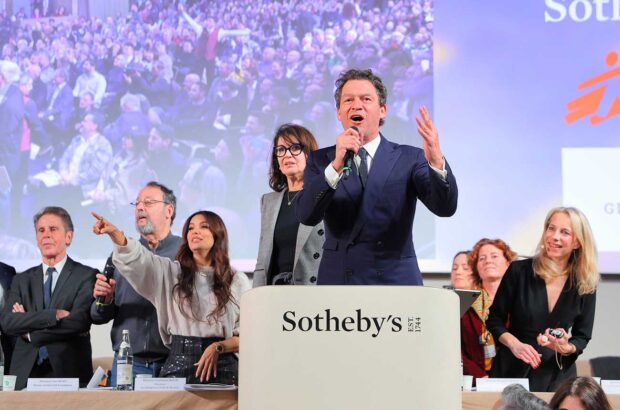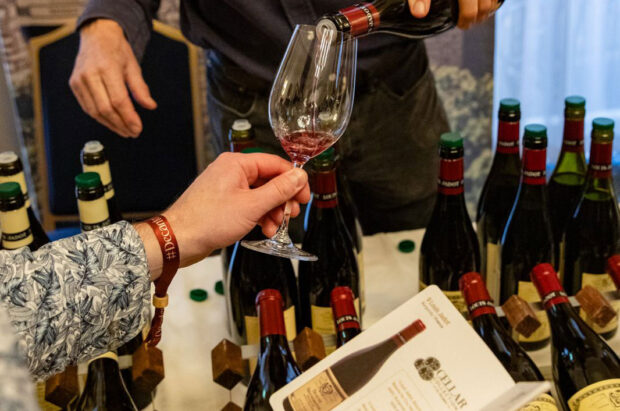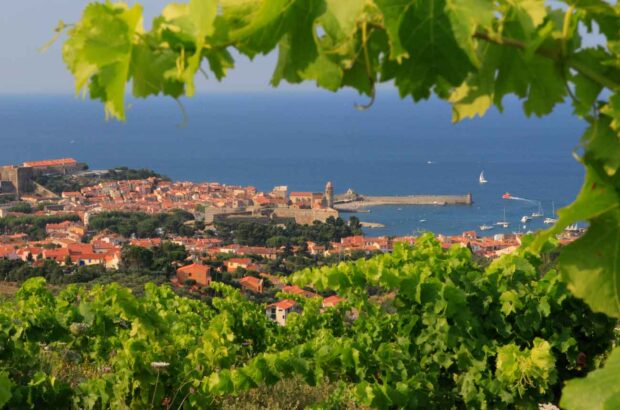Harvest is well underway in Napa Valley, California, but three days back in early September may prove the defining moment for the vintage, when temperatures up to forty-five degrees Celsius scorched the fragile young grapes.
‘I can’t remember a hotter weekend in September, and I’ve lived in Northern California my entire life,’ said Rob Davis, winemaker at Jordan Winery in Alexander Valley, Sonoma County.
The heatwave was the final event in a growing season defined by extreme, erratic climatic conditions. Winter saw heavy rainfall, while June met with an unexpected hail storm. But is the California 2017 vintage cooked?
Davis reported ‘minor sunburn’ on some Jordan Chardonnay grapes but added that most of his crop was back on-track after temperatures fell back.

Sunburn on Chardonnay grapes at Jordan Winery. Winemaker Rob Davis said that only a minority of bunches were affected. Credit: Jordan Winery.
It’s worth noting that some winemakers had already harvested.
Down in Santa Barbara, winemaker Raj Parr said that for those who picked before last week’s heat spike, 2017 can actually be considered a cool vintage.
But for those with grapes still on the vine—and that’s means the majority of Cabernet producers in Napa Valley—what is the prognosis?
It depends, ultimately, on the vineyard.
Dan Ricciato, who oversees vineyard operations for consulting winemaker Thomas Rivers Brown, said, ‘The final September heat really exposed weaknesses in specific sites that were laid out with disadvantageous row orientation, poor canopy management or general exposure issues. This was a great year to see which vineyards were farmed thoughtfully.’
Graeme MacDonald, who makes his MacDonald Cabernet Sauvignon from his family’s portion of the historic To Kalon vineyard, said that canopy management was essential, explaining that grape skins, like human skin, are prone to sunburn and need the shade of leafy canopies to prevent shrivelled skins, or stunted ripening and colour development.
While the vines were still affected by the heat, subsequent cool temperatures helped to temper the negative effects. But, he added, winemakers won’t have a definitive sense of the vintage until fermentation time.
Many, like Doug Shafer of Shafer Vineyards, turned to irrigation to slake the thirst of vines parched by the heat.
He explained that the mild temperatures throughout the rest of September have been essential in preserving quality: while sugars rise during heat spikes due to dehydration, they go back down when mercury falls. The essential thing is not to panic and pick before the flavours have fully developed, he said.
‘Now everything is right on schedule, and it’s looking to be a good harvest,’ he added.
Spottswoode’s Aron Weinkauf has also seen sugars fall since last week.
Grape grower Andy Beckstoffer agreed that although the heatwave stunted the vines early in the month, the fruit is now in good shape, the sugars well-developed, and the flavours continuing to mature.
Some in California are used to strong fluctuations in temperature. Cain winemaker Chris Howell said, ‘Here on the coast, heatwave is an apt phrase, because the weather truly does come in waves.
‘First cool marine air builds up and washes over us, then as the cooling wave recedes, warm air returns from the interior. The cycle completes when the cooling breeze and fog return.’
Back in Napa Valley, Mike Dunn of Dunn Vineyards summed up the general sentiment succinctly when he said the subsequent ‘cooling off period will save the vintage’.
Editing by Chris Mercer.







